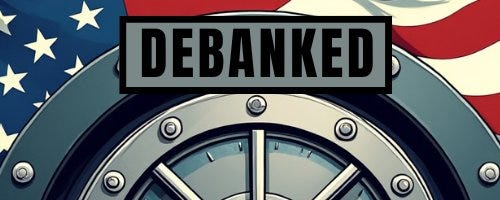DeBanked
Debanking is not new, thousands of people across Western democracies have experienced this financial tyranny, now we learn that even President Trump's family were subject to this un-American practice.
The Erosion of Financial Freedom: Debanking in Western Democracies
Over the past four years, a disquieting trend emerged across Western democracies: the weaponization of financial systems against individuals based on their political beliefs. This practice, known as "debanking," effectively ostracizes individuals from the modern economy if their views div…




